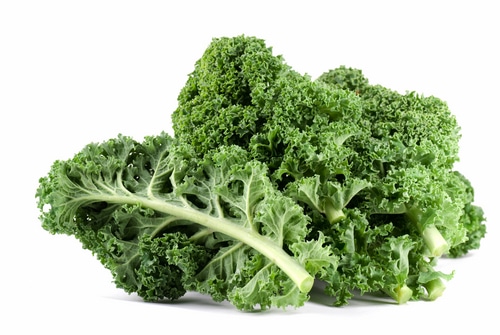 Kale is a rather infamous vegetable, as many people either love or hate its juicy taste. In addition, it is popularly claimed that kale is extremely good for your health, but it is seldom made clear exactly why this is supposed to be the case. As it turns out, this leafy green vegetable is capable of helping your body in some surprisingly powerful and far-reaching ways. Read on to discover nine reasons why eating more kale may significantly boost your quality of life by improving your health.
Kale is a rather infamous vegetable, as many people either love or hate its juicy taste. In addition, it is popularly claimed that kale is extremely good for your health, but it is seldom made clear exactly why this is supposed to be the case. As it turns out, this leafy green vegetable is capable of helping your body in some surprisingly powerful and far-reaching ways. Read on to discover nine reasons why eating more kale may significantly boost your quality of life by improving your health.
1)Kale promotes healthy bones:
Just one serving of Kale provides you with a staggering 1327% of your recommended daily intake of vitamin K. This will help to keep your bones maximally durable because vitamin K is vital to the production of a bone-strengthening protein called osteocalcin. A cup of kale will also provide you with 192% of your recommended daily intake of vitamin A, and it has been repeatedly shown that vitamin A helps to maintain healthy bones and teeth. Finally, kale contains more calcium than milk per calorie, and calcium helps to prevent osteoporosis (i.e. thinning of bone tissue).
2) It can improve digestive health:
Kale is an impressive source of fiber, containing close to 20% of your recommended daily intake. When your diet is rich in fiber, you will have regular bowel movements and will be less likely to suffer from problems with constipation. In addition, kale is a source of glucosinolate isothiocyanate, which has been proven to fight the growth of H. pylori bacteria. This will help to protect your digestive system, as H. pylori has been linked to stomach ulcers as well as to an increased risk of tumors in the digestive system.
3) It may help to protect against at least five different types of cancer:
Kale provides you with a rich supply of sulfur-based compounds that studies have shown can aid the body in breaking down carcinogenic chemicals. In particular, glucosinolates have been shown to reduce your risk of developing cancers of the colon, breast, prostate, ovaries, and bladder.
4) It has a powerful influence on your cholesterol levels:
Kale contains a compound called indole-3-carbinol, which dramatically reduces the production of a particular molecule that carries cholesterol. When too much of this molecule is present in the body, cholesterol can rise to unhealthy levels. Scientific research has shown that consuming the indole-3-carbinol found in kale can reduce your cholesterol levels by over 55% percent. It is also suspected that this compound can decrease the number of blood lipids produced by the liver, and this is also good news for your cholesterol levels (as higher blood lipid levels are associated with elevated cholesterol).
5) It is high in iron:
It may surprise you to learn that kale actually contains more iron than beef (per calorie). If you have plenty of iron in your diet, you will have more hemoglobin in your blood, and hemoglobin transports oxygen to all of your vital organs. In addition, iron is vital for cell growth, as well as for proper liver function.
6) It can help you to lose weight:
Kale is an ideal food to eat when you are on a diet, as it contains very few calories and no fat. In addition, a large amount of fiber that it contains will help you to feel fuller for longer, and this will help to strengthen your willpower when you want to avoid eating unhealthy snacks.
7) It has anti-inflammatory properties:
One serving of kale will provide your body with roughly 10% of your recommended daily intake of omega-3 fatty acids. Having the right amount of these acids in your diet is associated with an improvement in the regulation of your body’s inflammatory response. In addition, the large amount of vitamin K in kale helps to discourage the excessive inflammation that is characteristic of diseases such as arthritis and asthma.
8. It boosts your body’s detoxification system:
The isothiocyanates that kale provides have been shown to aid your body in detoxification processes. This will help to reduce your risk of developing a whole host of different health problems, including cancer and mood disorders.
9) It can help to prevent unwanted blood clots:
As mentioned repeatedly, kale is extraordinarily high in vitamin K. A diet rich in vitamin K is associated with a reduced risk of unwanted blood clots, and this is a very significant health benefit (as blood clots in certain places can ultimately lead to death).
As is obvious from the above ways in which kale can help your body, this vegetable is an excellent choice if you want to improve your daily intake of fruits and vegetables. Some people like to eat it raw with some added olive oil, but it can also be lightly steamed. Finally, it is important to note that you can easily identify healthy kale by looking for deeply colored leaves and strong stems.
Related Articles By Cathe:
Beyond Broccoli: The Exceptional Health Benefits of Cruciferous Vegetables
Eleven Amazing Health Benefits of Cucumbers
Ten Fascinating Health Benefits of Oranges
Twelve Fascinating Health Benefits of Papaya

